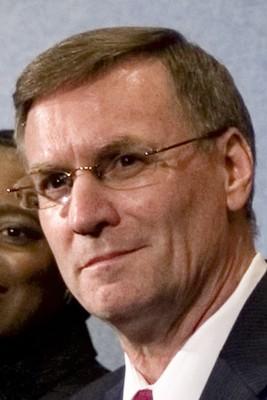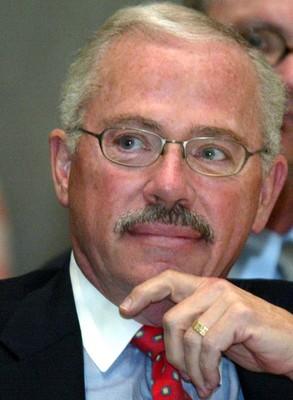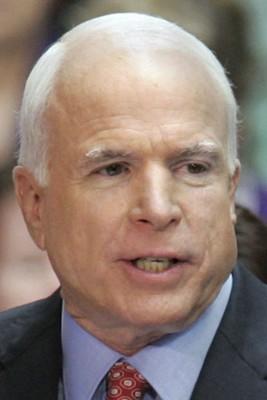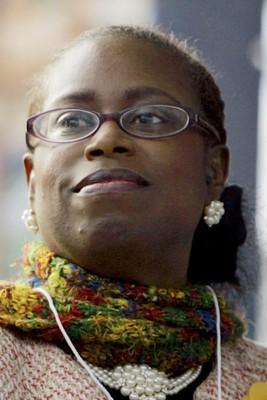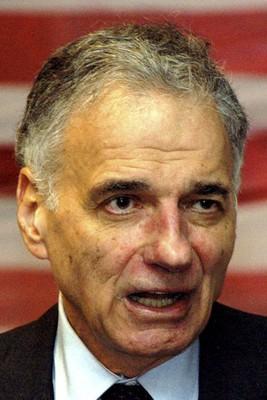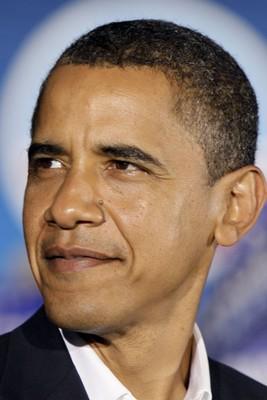U.S. PRESIDENT
Nevada has seen a lot of action from presidential candidates in recent months, as Democrat Barack Obama and Republican John McCain have both targeted the state with big organizations and massive amounts of advertising.
The major-party candidates will not be the only choices available to voters, however, as four other presidential tickets are set to be on the Nevada ballot.
Nevadans who want an alternative can select a ticket from the Independent American Party, the Libertarian Party or the Green Party, or an independent candidate not affiliated with a political party. Nevada also offers the choice of voting for "none of these candidates."
The Independent American Party, Nevada's third-largest, has as its candidate Chuck Baldwin and running mate Darrell Castle. The Libertarian candidate is Bob Barr, a former Republican congressman, whose running mate is Las Vegas handicapper Wayne Allyn Root.
Cynthia McKinney, a former Democratic congresswoman, and Rosa Clemente make up the Green Party ticket, while Ralph Nader, the consumer advocate who has run for president before, is running as an independent candidate. Nader's running mate is Matt Gonzalez.
Among the major party candidates, Obama, a first-term U.S. senator from Illinois, and his running mate, Sen. Joe Biden of Delaware, argue that wholesale change is needed in Washington to turn the country in a new direction. The Democrats blame Republicans, the party of President Bush, for failures of leadership.
Obama, 47, claims that as a relative newcomer with an uplifting vision, he can unite people and restore America's standing in the world. Born in Hawaii to a white American mother and black Kenyan father, he previously served as an Illinois state senator and worked as a lawyer, professor and community organizer. If elected, he would be the first black to occupy the White House.
McCain, 72, is a U.S. senator from Arizona currently serving his fourth term. He and his running mate, Alaska Gov. Sarah Palin, say they are the true reformers on the ballot, pointing to McCain's frequent departures from Republican orthodoxy over the course of his career and her challenges to the party in her home state.
A Vietnam War veteran who spent 51/2 years as a prisoner of war and emerged as a celebrated military hero, McCain argues that he has the experience and track record to guide the nation in uncertain times, especially in foreign affairs. Born in the Panama Canal Zone, McCain is the son and grandson of Navy admirals. He served in the House of Representatives before being elected to the Senate, for a total of 26 years in Congress.
With the economy in free fall, the candidates' debates have focused on how to halt the crisis. McCain has emphasized his long record of opposition to pork-barrel spending and proposed further fiscal restraint, though he has also said he would extend all of President Bush's tax cuts, which Democrats say would deprive the government of needed revenue.
McCain recently proposed a plan that would have the government buy up troubled mortgages and renegotiate them to keep families from losing their homes to foreclosure. Obama has gotten behind a Democratic plan to hand out a tax rebate of $500 per individual in order to stimulate the economy. Both candidates returned to the Senate to vote in favor of the $700 billion federal bailout plan.
Obama's economic proposals include a middle-class tax cut that he says would reduce the tax burden on families making less than $250,000, while raising taxes on more wealthy people and big corporations, something Republicans say would further injure the economy as a whole.
Among the candidates' many differences, Obama proposes withdrawing American troops from Iraq safely but quickly, while McCain is against timetables for withdrawal. Obama opposed the 2003 invasion of Iraq, while McCain supported it; Obama opposed last year's "surge" of additional troops into the country, which McCain backed and now credits with improved security there.
Obama would attempt to make health insurance universal, including requiring that children be covered and allowing people to buy into a government-run health plan, among other options. McCain would avoid more government involvement in the system, instead giving people a tax credit to buy health insurance, but also imposing a new tax on insurance provided by employers.
Both candidates say they would aggressively pursue energy independence and try to stop global warming. Both have changed their positions on drilling for oil offshore and now favor it in limited ways.
Obama says he opposes the proposed nuclear waste repository at Nevada's Yucca Mountain and would put a stop to it as president, though he has left the door open to expanding nuclear power if the waste problem can be solved. McCain favors an immediate and dramatic expansion of nuclear power and has been a strong proponent of Yucca Mountain in his career, though he says its safety must be assured.
Obama has made 18 trips to Nevada since beginning his campaign, including five visits since the caucuses. McCain has been to the state eight times, five since the caucuses.
Among the minor parties, Independent American candidate Baldwin, 56, is running in some other states on the Constitution Party ticket. He lives in Florida, where he is a Baptist minister and talk-radio host. Baldwin is a conservative former Republican who believes the GOP has become too liberal, and he has been endorsed by Republican Rep. Ron Paul of Texas.
The party's platform includes severely curtailing the size and scope of government, making abortion illegal, clamping down on illegal immigration and allowing states to secede from the union.
Libertarian Barr, 59, is a former federal prosecutor and Georgia congressman who says he has had a change of heart on such issues as the war on drugs, which he once championed; gay marriage, which he once opposed; and the war in Iraq, which he voted to authorize.
The party stands for decreasing government intervention in all areas of people's lives, from taxes to foreign policy to social behavior. Barr has criticized the major-party nominees for their support of the Wall Street bailout, saying the market should be left alone.
Atlanta native McKinney, 53, was the first black woman to represent Georgia in the House of Representatives but lost her seat in a 2006 primary runoff after controversial incidents including an altercation in which she struck a U.S. Capitol Police officer who didn't recognize her as a member of Congress.
A staunch Iraq war opponent who has suggested the government may have been involved in the Sept. 11 terror attacks, McKinney in Congress introduced legislation to impeach President Bush. The leftist Green Party calls for protecting the environment, empowering communities at the grass-roots level and reducing the influence of corporations.
A lawyer who lives in Washington, D.C., Nader, 74, became well known in the 1960s as an advocate for automobile safety. He is the founder of Public Citizen, which advocates for government regulation to protect people's health and safety as well as the environment. The organization also strongly opposes nuclear power.
As the Green Party candidate in 2000, Nader got less than 3 percent of the national popular vote. He ran as an independent candidate in 2004. This year, Nevada supporters collected more than 12,000 signatures to secure him a place on the state's ballot. Nader criticizes both major parties as too beholden to corporate interests. His positions include greater regulation of Wall Street and the market and the creation of single-payer national health insurance.
Contact reporter Molly Ball at mball@reviewjournal.com or 702-387-2919.
PRESIDENTIAL DUTIES The president's duties include making sure the laws are faithfully executed and serving as commander in chief. The president has the power to appoint Cabinet members and nominate federal judiciary members, including the Supreme Court. Annual salary is $400,000. REVIEW-JOURNAL



